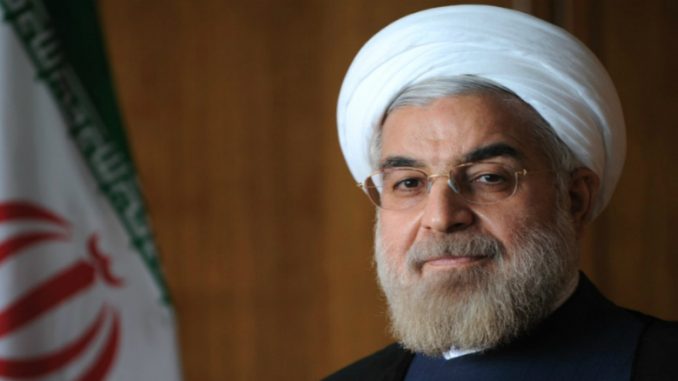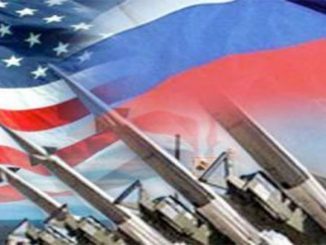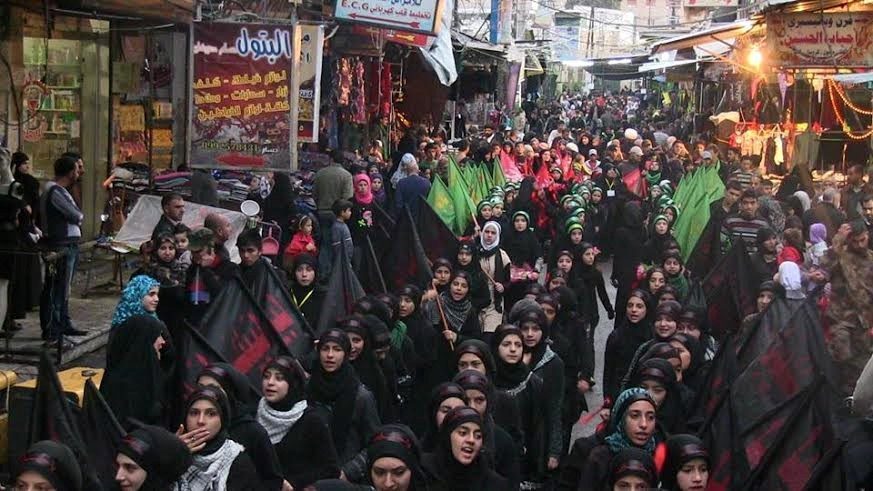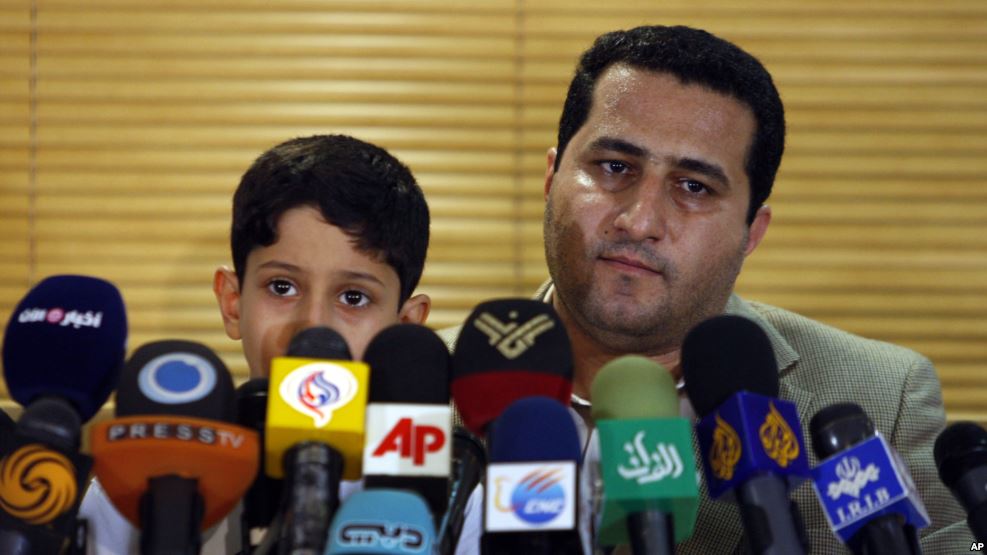
As the hardliners in Iran keep criticizing Rouhani and his role, they have gathered and nominated a powerful cleric as their possible candidate to run in next month’s presidential election, Iran’s state news agency IRNA said.
Iran made a historic nuclear deal with P5+1 powers in 2015, in which Tehran agreed to amend its nuclear output in order to lift all nuclear-related economic sanctions, freeing up tens of billions of dollars in oil revenue and frozen assets.
After lifting the sanctions, Iranian president Hassan Rouhani visited Europe and made deals that worth billions of dollars. European companies started looking for investment opportunities in the growing Iranian market.
The Iranian government also sought deals with western companies to develop and maintain its natural resources such as Oil and Gas.
In addition, Iran has made new trade relations with many European countries to widen the Iranian market and help in modernizing the country’s infrastructure and its public transport.
Nevertheless, doubts have been cast on whether Hassan Rouhani will be capable of pulling off a victory as he is facing escalating criticizing from his rivals, the hardliners. Will he be Iran’s first one-term president?
Conservative candidates
Iran’s powerful hardliners have been gearing up for a showdown in the May 19 vote to end Rouhani role at the borders of its first term and regain the presidency.
Iran’s conservatives announced a shortlist of five presidential candidates on Thursday as they experimented with their first-ever democratic primary in a bid to find a leader to challenge Rouhani.
During a press conference on Thursday, the conservative “Popular Front of Islamic Revolution Forces” (PFIRF) announced its electoral platform that will compete against President Hassan Rouhani.
Until next week’s registration period for nominees is closed, it will not be confirmed that Ebrahim Raisi is the main conservative challenger.
But Raisi is an ally of Supreme Leader Ayatollah Ali Khamenei and analysts believe his nomination has been approved by Khamenei. If an anti-Western hardliner wins, analysts expect more restrictions on social and political freedoms in Iran.
“If Rouhani’s rival camp reaches a consensus over Raisi’s nomination, he will be a strong rival for Rouhani,” said analyst Hamid Farahvashian.
He served as deputy parliament speaker between 2005 and 2015 before acting as general prosecutor in 2015 and 2016. He was then appointed by Khamenei as head of the Astan Quds Razavi, the greatest religious-economic foundation in the country that does not pay taxes.
“Ebrahim Raisi has accepted the calls to run for the election … he will announce his plans soon,” IRNA quoted Solat Mortazavi, the mayor of Mashhad, as saying.
Raisi had declared in March that he was not seeking to run for president. A few days ago however, over 50 members of the Assembly of Experts sent a letter to Khamenei demanding that he back Raisi’s candidacy. A campaign demanding that Raisi run in the polls was also launched by conservatives and the revolutionary guards.
Iranian observers have however voiced their concern over Raisi’s running due to his judicial record, especially in light of the executions in the summer of 1988.
Hard criticism for Rouhani
Fingers are being pointed at Rouhani from almost every direction. The blame has also been attributed to the technocrat team he chose who are mainly western-educated politicians, including Iran’s foreign minister, Javad Zarif.
One group, in particular, is more empowered and feels fully vindicated in pointing towards Rouhani’s failures: the hardliners. The hardliners are mainly the judiciary system, the Revolutionary Guard Corps and its five forces, including the Quds Force and Basij, the Ministry of Intelligence, the Assembly of Experts and Ayatollah Ali Khamenei, the Supreme Leader.
Recently, Iran’s supreme leader rebuked Rouhani for failing to fulfil his promises on improving the economy. Khamenei stated: “We receive complaints from people. … People should feel improvements regarding creation of jobs and manufacturing. It is not the case now.”
The timing of Khamenei’s speech was intriguing as it came soon after the International Monetary Fund’s recently released report on Iran’s economy. The executive board of the IMF commended the Iranian authorities for “achieving an impressive recovery in economic growth after the lifting of nuclear sanctions in 2016..”
The senior cadre of the Revolutionary Guards has also become more unrestrained as they argue Rouhani’s agenda of rapprochement with the United States and the West has failed. Ayatollah Ahmad Jannati, the head of the assembly of experts that selects Iran’s supreme leader, lashed out at Rouhani’s failure to improve the economy as well.
Rouhani’s attempts to attract foreign investment on a large scale had not materialised. Khamenei rebuked Rouhani: “Attracting foreign investment is a positive measure but so far a very limited [number] of foreign contracts have materialised.”
America’s seemingly changing policy towards Iran is also not helping Rouhani. Former US national security adviser, Michael Flynn, put Iran “on notice” after Iran test-fired a ballistic missile in apparent violation of a UN resolution. Iran argued that its ballistic missile is for defence purposes. Later, Iran testfired a pair of missiles and launched military exercises in the Strait of Hormuz, where one-third of the global oil traded by sea passes through. Last week, US officials said that an Iranian frigate strayed dangerously close to a US navy ship.
Hardliners are capitalising on the heightened tensions between Iran and the US and hope to stop Rouhani from becoming president for another four years.
Most of Iran’s newspapers, which are owned by the hardliners, have also started a campaign to highlight Rouhani’s failures in domestic, foreign, and regional policies.
Classic tactics by Khamenei
It is worth noting that Khamenei is resorting to his classic tactic of wielding power while avoiding being held accountable at any cost. To accomplish his objective, Khamenei has always made sure that his presidents take the responsibility for economic or political failure. In addition, he has ensured that the president doesn’t wield any actual power.
Rouhani did bring billions of dollars of extra revenues to Iran. But, the major reason that many people did not see the fruit of sanction reliefs or foreign contracts is that the beneficiaries of this additional cash were mostly the elite. Business deals were sealed at state level. The money did not trickle down to the people.
In his New Year’s message, Khamenei renewed his hard criticism for Rouhani’s policy, using his tactics once again perfectly.
“I feel the pain of the poor and lower class people with my soul, especially because of high prices, unemployment and inequalities,” Khamenei said.
“The government has taken positive steps but they do not meet people’s expectations and mine,” he added, setting out a clear battle line before the presidential vote.
Unemployment stood at 12.4 percent in this fiscal year, according to the Statistical Center of Iran, up 1.4 percent from the previous year. About 3.2 million Iranians are jobless, out of a total population of 80 million.
“I call the new year a year of resistance economy, production and employment,” Khamenei said in the pre-recorded video broadcast on state television.
Khamenei has coined the term “resistance economy” to describe measures to make Iran’s economy more self-sufficient, in contrast to Rouhani’s policy of seeking to open Iran to more international trade and investment.
The starkly different messages from the supreme leader and the president could polarize voters ahead of the presidential election.
The New Year, or Nowruz, is the nation’s most important holiday. It marks the start of spring and is usually celebrated on 21 March, the previous day or the following day in a tradition that has lasted thousands of years.



